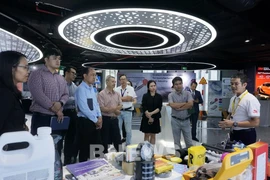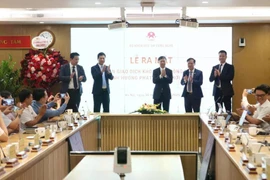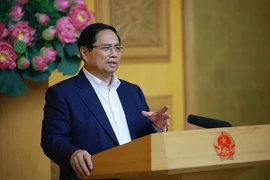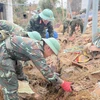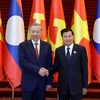Hanoi (VNA) – The Vietnamese Government has issued a new decree outlining mechanisms and policies to promote public-private partnerships (PPPs) in science-technology development, innovation, and digital transformation.
Decree No. 180/2025/ND-CP stipulates mechanisms and policies for PPPs in scientific research, technological development, innovation, and digitalisation. It covers partnerships under the Law on PPP Investment, joint ventures involving public assets, and the responsibilities of all parties involved.
Key areas eligible for PPPs include high and strategic technologies; infrastructure for the research, development, and application of high and strategic technologies; and digital infrastructure supporting the digital economy, digital society, and digital government. Shared digital platforms, as stipulated in the National Assembly’s Resolution No. 193/2025/QH15 on piloting some special mechanisms and policies for making breakthroughs in science-technology development, innovation, and national digital transformation, are also entitled to PPPs.
The decree also encourages PPPs in digital technology workforce training and training infrastructure development, as well as in technologies, products, services, and activities aligned with the goals of scientific research, technological development, innovation, and digital transformation.
The decree introduces a range of incentives to attract private sector participation. Organisations and individuals engaging in PPPs will benefit from preferential tax policies.
Additional incentives include exemptions and reductions in land use and lease fees, along with others under the existing land and investment laws. Participants may also retain ownership of scientific research, technological development, and innovation results and benefit from the risk-tolerance mechanism tailored to science and technology activities.
Furthermore, the State may place direct orders or assign contracts for products and services resulting from PPPs in performing special scientific, technological, and innovation tasks in accordance with current legal provisions./.
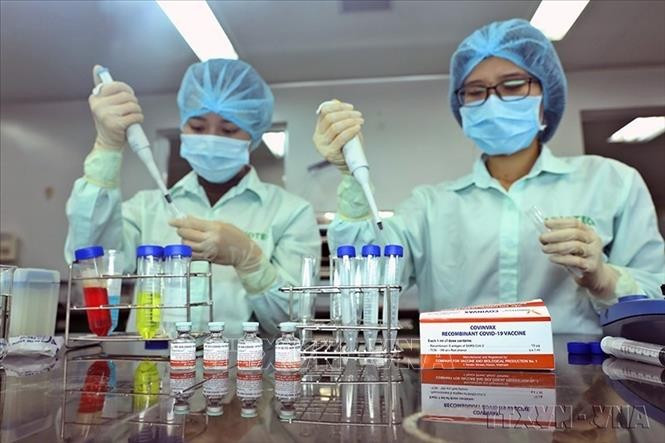
See more
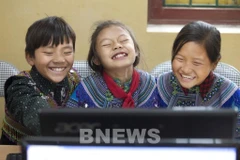
Viettel’s “Internet for Schools” project wins top honour at Human Act Prize 2025
The accolade recognises Viettel's nearly two-decade journey of expanding digital access to educational establishments, especially in rural, mountainous and island areas where technological limitations have long hindered learning and development opportunities for younger generations.

Internet Day 2025 highlights trust as cornerstone of digital development
Vietnam aims to develop a safe, humane, and trustworthy Internet that serves socio-economic development, with trust as the foundation, innovation as the driving force, and institutions as the pillar.
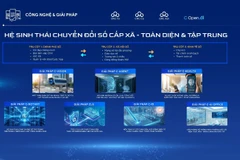
Ward- and commune-level comprehensive digital transformation ecosystem launched
The ecosystem aims to build unified operational capacity at the grassroots level, reduce information delays and improve public service quality. It is structured around three key pillars.

Resolution No. 57: Digital transformation largely benefits people, businesses
The Law on Digital Transformation lays an important legal basis for implementing the Politburo’s Resolution No. 57-NQ/TW on breakthroughs in science – technology development, innovation, and national digital transformation.
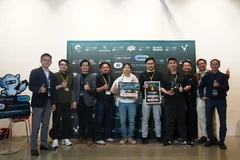
AI hackathon connects Vietnamese tech engineers in Japan
A total of 32 teams registered for Vietnam–Japan AI Hackathon 2025 and competed through three rounds, with the eight strongest advancing to the final held on December 13.
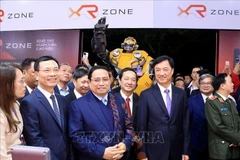
Vietnam to become attractive destination for tech talent, innovative startups: PM
TechFest Vietnam 2025, held from December 12 to 14, is expected to attract more than 60,000 participants both in person and online, with the participation of over 20 corporations, 50 investment funds, more than 100 supporting organisations and incubators, and delegates from Southeast Asia, Northeast Asia, Central Asia, the Middle East, North America, and Europe.
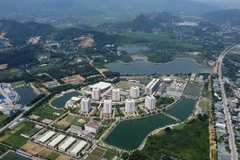
Hanoi eyes turning Hoa Lac into Vietnam’s Silicon Valley
The ambition reflects the city’s vision to nurture world-class research, high-tech manufacturing and a thriving startup ecosystem capable of powering long-term growth.
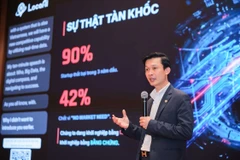
Vietnam emerges as attractive destination for technology capital in Southeast Asia
The report notes that after more than a decade of development, Vietnam’s startup ecosystem has entered a phase of deeper growth and stronger international integration. The country is now home to more than 4,000 startups, two unicorns, and dozens of companies approaching unicorn status.
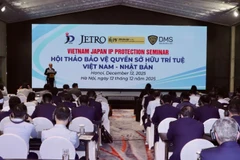
Vietnam, Japan enhance cooperation in intellectual property protection
Tran Huu Linh, Director of the Agency for Domestic Market Surveillance and Development, said IP infringements have recently become more sophisticated, particularly in fast-moving consumer goods, fashion, cosmetics and electronic components.
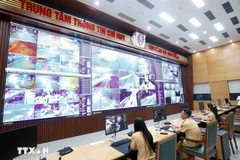
Applying the Internet of Things in smart transport
The project aims to build a unified, safe and efficient IoT platform to support the management, operation and exploitation of smart transport systems under the Ministry of Construction, with data shared across ministries and localities.

Viettel secures three prestigious international awards
Viettel has won honours in the “People & Culture” and “Best Operator in a Growth Market” categories at the 2025 World Communication Awards (WCA), alongside the “Best Digital Transformation Project” at the 2025 Global Telecoms Awards (Glotel).
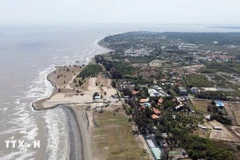
Green-tech push for Can Gio
Vietnam has the capacity, ambition and technological foundation to join the group of leading sustainable coastal urban nations in the coming decade, experts said at a dialogue on "advancing to the sea with ESG++ megacities: breakthroughs through green technology", held on December 9 in Hanoi by the Vietnam Institute for Real Estate Studies (VIRES).
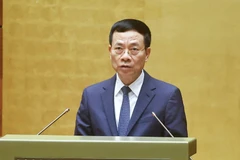
Vietnam turns intellectual property into bankable assets in new law
About AI-generated content, the law draws a clear line: purely autonomous AI creations are not eligible for copyright or patent protection. Those who provide substantial creative input, such as ideas, curation, editing, or selection, qualify as authors or inventors.
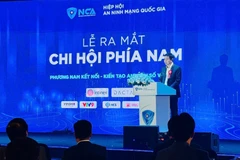
National Cybersecurity Association opens branch in HCM City
The southern branch aims to become a coordinating body for cybersecurity tasks, workforce development, awareness-raising and the strengthening of digital defence capabilities across the region, contributing to the safe and sustainable growth of Vietnam’s digital economy.
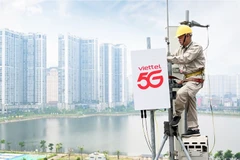
Viettel exceeds target of 20,000 new 5G stations by more than three weeks
Viettel plans to continue scaling up its network from now until the end of 2025, with an additional 23,500 stations scheduled for installation, nearly quadruple the number rolled out in 2024. Once completed, Viettel will operate Vietnam’s largest 5G network, with 30,000 stations covering 90% of outdoor areas and 70% of indoor spaces nationwide, from major cities to rural regions.
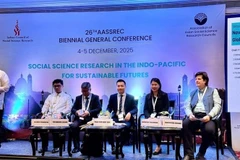
Vietnam Academy of Social Sciences affirms role in Asia's research community
The VASS delegation joined the plenary session and seven specialised discussions of the the 26th Biennial Conference of the Association of Asian Social Science Research Councils (AASSREC), focusing on social science research in the Indo-Pacific for a sustainable future.
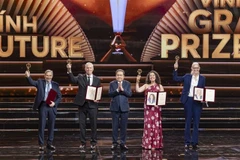
VinFuture 2025 Grand Prize honours scientists for discoveries, development of HPV vaccines
The 2025 VinFuture Grand Prize valued at 3 million USD has been awarded to four scientists for their discoveries and development of HPV vaccines for prevention of tumors caused by human papillomaviruses.

Vietnam emerges as new hub for data centres
Data centres have surged to become the second most preferred alternative asset class in the region. Vietnam is no exception to this trend as the demand for infrastructure supporting AI, cloud computing, and digital services has risen at an unprecedented level.
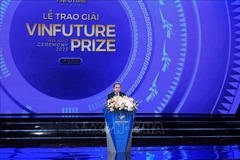
VinFuture Prize helps consolidate trust in power of science, technology: NA Chairman
VinFuture Prize has not only honoured outstanding scientific achievements but also created valuable dialogues and forums connecting scientists, businesses, and policymakers. These exchanges have sparked new ideas, fresh approaches, and innovative cooperation models that continue to spread widely.
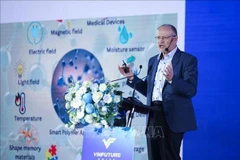
Vietnam has advantages to develop versatile humanoid robots: experts
At the symposium, international and Vietnamese experts also discussed the latest trends in robotics, from socially interactive humanoids and collaborative service robots to medical and rehabilitation systems, and examined major challenges surrounding AI safety and ethics to ensure that robotics evolves in a responsible, human-centred and sustainable manner.
